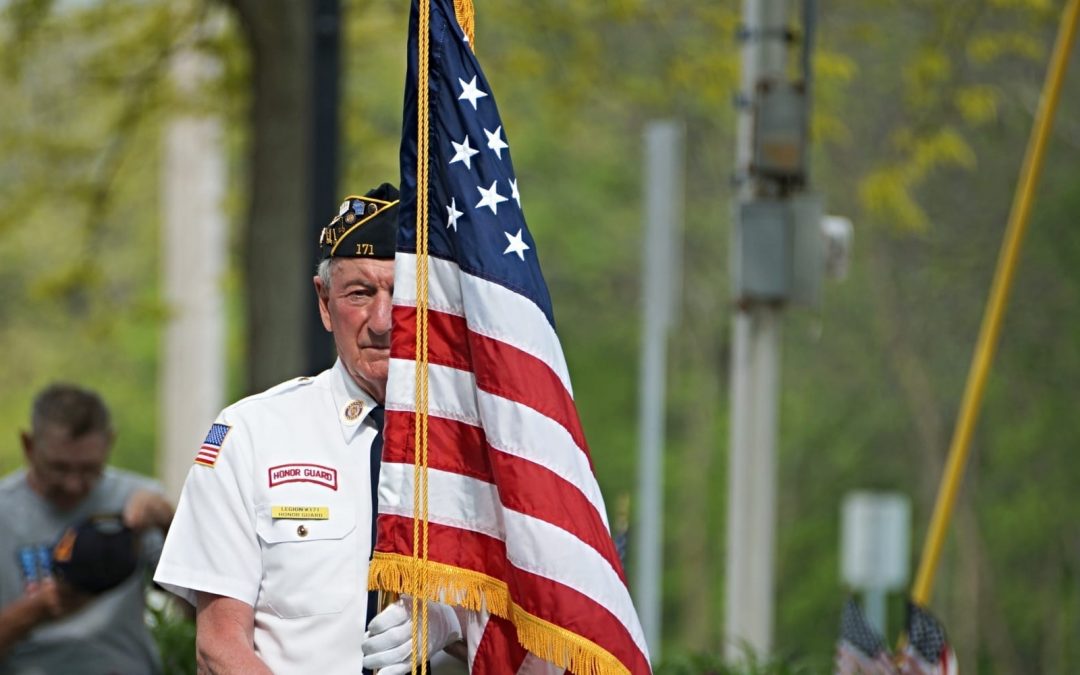I began a new call as a hospital chaplain in northwest Ohio a few months ago.
One of the most significant aspects of this calling is the opportunity to converse with my patients (most are in their 70s and 80s) about their life experiences.
Working with patients, especially older men, has allowed me to visit with many veterans that served in the Korean War and Vietnam.
With most of the World War II generation now deceased, veterans who served in Korea and Vietnam are approaching their later years and dealing with chronic health conditions.
The sentiments they share about their military experience are often sharply contrasted with that of both my grandfathers who fought in World War II.
As veterans of wars that did not result in a clear victory for the U.S. and with the controversy of Vietnam, these patients have experienced post-traumatic stress disorder (PTSD) while also wrestling with feelings of guilt, embarrassment, grief and disappointment.
With the recent controversy surrounding NFL football players kneeling during the national anthem in protest of the injustices in our judicial system, we as a nation are struggling to define what it means to support our men and women in uniform.
For congregations, how to provide support for veterans is often discussed, particularly around the national holidays of Memorial Day and Veterans Day.
For many church leaders, there is a struggle to keep our worship services from becoming patriotic performances.
For many veterans, patriotic worship services often trivialize and neglect the pain and affliction they still live with today.
What are proper ways that our congregations can honor the sacrifices made by the men and women who served in the armed forces while avoiding a patriotic worship service? Here are three suggestions:
- Get to know those in your congregation who are veterans.
Finding out what led them to join the military and where they served creates the foundation for a relationship to be built. Getting to know veterans in your congregation allows individuals to see them as people, and not just as a statistic.
- Create a safe space.
The church should be a safe place for all people, no matter their race, ethnicity, gender identity, sexual orientation or political affiliation. And veterans need a safe place too.
Unfortunately, many veterans struggle to find a sense of belonging and community following their time as service members.
For those who were recently discharged, they lose their sense of being part of a community.
For those struggling with PTSD, homelessness or other issues following their military service, a great need exists to find a place of compassionate care and acceptance, a place where they can be part of something greater than themselves.
We must be reminded that those who serve come from a variety of backgrounds and experiences.
And while many served to better our country, many served because it was an opportunity to get out of the cycle of poverty and limited opportunity.
For congregations and denominations that feel called to be a voice with and for those facing social injustice, please include support of veterans in your call to action as well.
Sometimes, there is an avoidance for many social justice-seeking Christians to be a voice against the injustices facing veterans because there is a fear that in doing so they will be supporting our country’s military actions and defense policies.
In reality, one can still critique or oppose our country’s military actions while also being a voice for our veterans.
- Allow them to tell their stories if they are interested and able.
For many veterans, there is a struggle to share their stories because they may be too painful, or they fear others won’t understand.
Even though I am a chaplain in the Air Force Reserve, I cannot comprehend what many of my patients who served in Vietnam or my friends who have served in Iraq and Afghanistan experienced.
I shouldn’t try to force them to tell me what it was like, but I should make myself available to listen when they wish to share.
As Christians in the U.S., let us remember that the biggest way we can honor our veterans is not through worship services centered around an unauthentic fantasy of “American exceptionalism” on Veterans Day.
Instead, let us honor our veterans and those who serve or served our country in authentic ways by providing care and compassion to them while also being an advocate for the issues they are struggling with that too often go unaddressed.
In this way, we can not only be Americans, but also be Christians too.
Christopher L. Schilling is an ordained Christian Church (Disciples of Christ) minister, hospital chaplain, and a chaplain in the Air Force Reserve.

